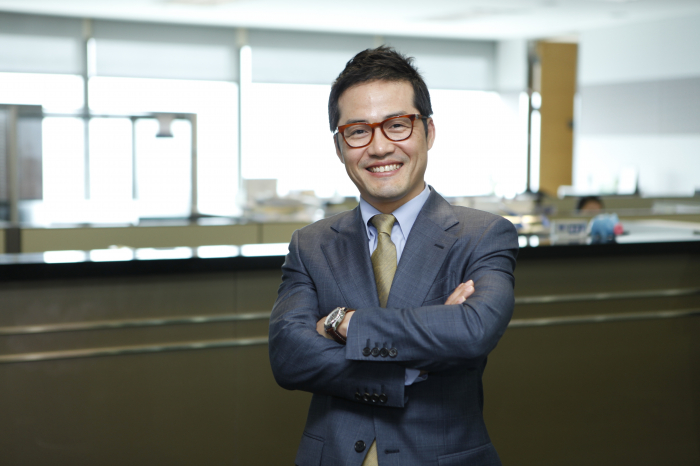Venture capital
South Korean startups raise record-high Series A funding
A total of 418 startups raked in $2.8 billion over the last year, with KB Investment and Korea Investment Partners leading the investment
By Jun 08, 2022 (Gmt+09:00)
3
Min read
Most Read
LG Chem to sell water filter business to Glenwood PE for $692 million


Kyobo Life poised to buy Japan’s SBI Group-owned savings bank


KT&G eyes overseas M&A after rejecting activist fund's offer


StockX in merger talks with Naver’s online reseller Kream


Mirae Asset to be named Korea Post’s core real estate fund operator



South Korea's early stage startups raised a record amount of funding in the last 12 months.
Even though venture capital firms at home and abroad are tightening their belts, the enthusiasm for early stage startups has survived the retrench. The belt-tightening follows concerns over inflation and continued interest hikes by major central banks.
KB Investment Co. and Korea Investment Partners led the bullish sentiment.
Even though investing in early stage startups tends to be quite risky, the return could be higher than betting on later-stage startups. That in turn requires the investor to be especially discerning to find hidden gems.
A total of 581 venture capital firms in South Korea injected capital into 476 startups’ Series A rounds in the last 12 months, according to Hankyung Geeks’ analysis of data provided by The VC.
Excluding the 58 startups that preferred not to disclose the investment amount, 418 startups received a total of 3.5 trillion won ($2.8 billion) from institutional investors. The figure is the highest ever for the country’s venture capital ecosystem in a 12-month time span.
KB Investment led the spending spree by investing in 36 rounds of Series A fundraising.
It invested in Block Odyssey, which manages logistics by using blockchain-based QR codes; virtual meeting solutions provider oVice; edtech startup Seoltab and more.

SMALLER VCs
In contrast to the larger venture capital firms that have recently shown interest in early stage startups, the smaller boutique VCs have invested largely at the companies' nascent stages.
Capstone Partners, which dubs itself to be a “Micro VC,” participated in 18 rounds of Series A funding over the past year.
TBT Partners was also bullish on investing in early stage startups. The venture capital firm is founded by Ram Lee, the mastermind behind Cyworld and Naver Corp.’s Blog and Band products.
TBT mostly invested in information tech platform operators such as automobile purchase information provider Getcha Co.; co-working tool Shopl operator Shopl & Co.; and accommodation curating platform Stayfolio.
DSC Investment, widely considered to be a “unicorn detector,” participated in 19 Series A rounds. Company K Partners, for its part, participated in 12 Series A rounds.
DIVERSE INVESTORS

In the past few years, banks, securities firms, CVCs, enterprises, and private equity funds have all intensified their investments in startups raising funds in Series A rounds.
A startup at this stage would have viable products and services and established a mass production infrastructure to expand its foothold in a significant manner.
Even though a couple of dozen VCs invested in more than 10 startups in the past year, 60% of the entire institutional investors injected funds into just one startup at a time.
Experts say investment into Series A rounds will intensify going forward, helped by the slowdown in the race for initial public offerings.
“The fact that a startup at Series A stage generally has 5-7 years until it goes public, investors are taking note of the fact that they do not have to worry about getting their money’s worth in the near future,” an industry insider told The Korea Economic Daily.
Write to Jong Woo Kim at jongwoo@hankyung.com
Jee Abbey Lee edited this article.
More to Read
-
 Business & PoliticsTrump Jr. meets Korean business chiefs in back-to-back sessions
Business & PoliticsTrump Jr. meets Korean business chiefs in back-to-back sessionsApr 30, 2025 (Gmt+09:00)
-
 Korean chipmakersSamsung in talks to supply customized HBM4 to Nvidia, Broadcom, Google
Korean chipmakersSamsung in talks to supply customized HBM4 to Nvidia, Broadcom, GoogleApr 30, 2025 (Gmt+09:00)
-
 EnergyLS Cable breaks ground on $681 mn underwater cable plant in Chesapeake
EnergyLS Cable breaks ground on $681 mn underwater cable plant in ChesapeakeApr 29, 2025 (Gmt+09:00)
-
 Business & PoliticsUS tariffs add risk premium to dollar assets: Maurice Obstfeld
Business & PoliticsUS tariffs add risk premium to dollar assets: Maurice ObstfeldApr 29, 2025 (Gmt+09:00)
-

Comment 0
LOG IN


